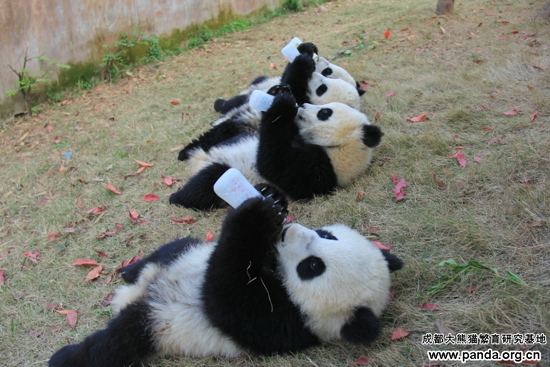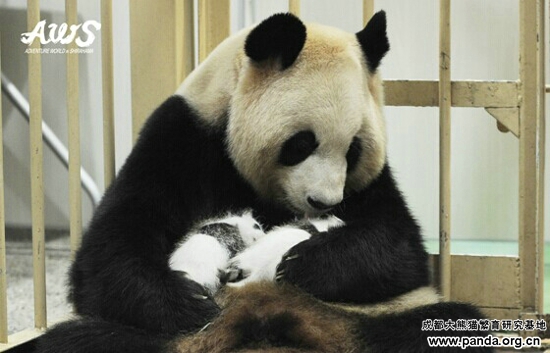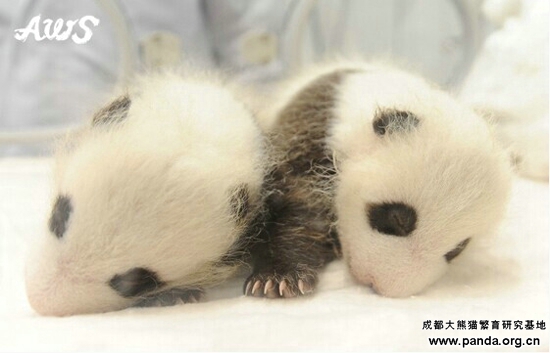The Chengdu Research Base in China might just be one of the cutest places on earth.
The Base provides a specialised breeding centre and nursery that breeds and raises new Giant Pandas in an aim to revitalise the dwindling population.
It’s sole aim since its foundation in 1987 has been to breed baby Giant Pandas to ensure their survival.
And each panda cub is special because of how hard it is to get pandas to breed. Female pandas are able to breed for only two to three days per year and they only give birth to one cub every two years.
Currently the Giant Panda population is 1,864 according to the World Wildlife Foundation (WWF).
Earlier this month a nine-year-old female panda Meng Meng gave birth to a baby boy who joins his two-year-old twin brothers at the panda centre. A day after the birth a 8.4 million online visitors viewed the centre’s blog prompting the release of rare pictures of baby cubs leading to the images going viral.
What you need to know about the Giant Panda and the Chengdu Research Base:
- A newborn panda is compared to the size of a stick of butter which is one nine hundredth the size of its mother while adult pandas can grow to 150kgs
- The Giant Panda only inhabits the six major mountain ranges in Sichuan, Shaanxi and Gansu provinces of China
- The species is on the endangered list by the Convention on International Trade in Endangered Species of Wild Fauna and Flora and is protected by China’s Wildlife Protective Law as the special-class protected animal
- Chengdu has been the ancestral homeland to giant pandas since ancient times and fossil records indicate pandas inhabited this area as recently as 4000 years ago











